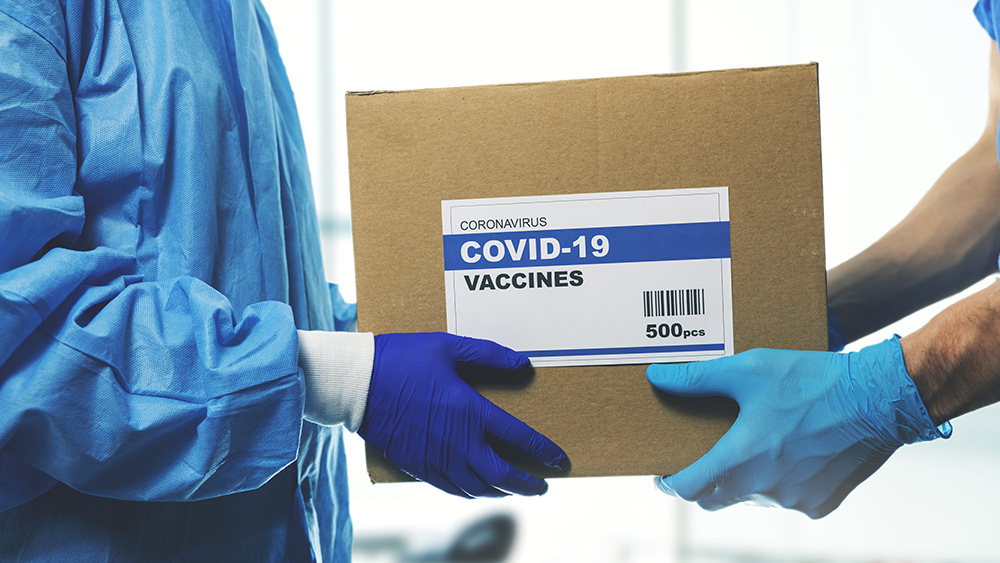Brazilian scientists claim they’ve discovered live, replicating adenoviruses in Russia’s covid vaccines
04/30/2021 / By Lance D Johnson

Brazilian scientists discovered a serious issue with Russia’s Sputnik V covid vaccine. This serious issue could lead to a new public health crisis, which is why Brazilian regulators have banned the import of this vaccine.
The vaccine in question was developed by Russia’s Gamaleya Institute. Like the AstraZeneca and the Johnson & Johnson vaccine, the Sputnik V covid vaccine uses a genetically modified adenovirus to carry genetic instructions into the cells of human recipients. Once inside the cells, these genetic instructions force the cells to develop the spike protein from SARS-CoV-2. If the process goes as planned, immune-responsive cells are supposed to respond to this new influx of spike proteins, which are delivered on the surface of the cells.
In the wild, the adenovirus normally causes mild respiratory illness in humans. The adenovirus used in the vaccine is genetically modified and disabled, so it cannot replicate in human tissues. But this is not always guaranteed. The vector can revert to LIVE form in some people, destroying the vaccine’s methodology, causing new infections, and contributing to community spread.
Adenovirus-vectored vaccines can revert to LIVE form, putting the immunocompromised at risk
Brazil’s drug regulatory agency, Anvisa, tested samples of the Sputnik V covid vaccine. They found that the genetically weakened adenovirus is still “replication-competent” and can rapidly multiply once it’s injected into humans. Once the adenovirus begins to replicate, the DNA code that it was supposed to carry into the cells becomes disabled, rendering the shot ineffective as a covid-19 vaccine.

Top virologist Angela Rasmussen said this finding “raises questions about the integrity of the manufacturing processes.” If the genetically modified adenovirus reverts to a live, infectious form in the human body, it can make people sick, especially those with weaker immune systems. The live virus can then contribute to community spread of new respiratory viruses, creating new public health challenges.
“For most people this probably won’t be a big deal because adenoviruses are generally not thought of as really important human pathogens,” said Rasmussen. “But in people who are immune compromised … there could be a higher rate of adverse effects because of it, including potentially serious ones.”
This unbeknownst adenovirus replication also gives the vaccinated person a false sense of security, because the intended encoding process for spike proteins never occurs and never provokes an immune response.
The fallibility of adenovirus-vector vaccines is well known
At some point in the vaccine manufacturing process, the adenovirus is recouping all the genes it needs to restore its ability to replicate. The Brazilian scientists believe this is occurring during the manufacturing process called “recombination.” When the inactivated adenovirus is grown in aborted fetal cells, it can secretly gain back the genes it needs to continue its replication process. Once inside human test subjects, the adenovirus can begin replicating, leading to adverse events, sickness and community spread of a new respiratory virus. It is also unknown whether the DNA code for the spike protein is being disabled during this manufacturing process. The vaccine might be intended to create herd immunity, but it could inadvertently weaken herd immunity and promote the spread of new infectious virus material in the community.
The Sputnik V vaccine was developed as a two-shot protocol, which isn’t validated in the scientific community. The first shot contains adenovirus type 26 and the second shot contains adenovirus type 5. The immune responsive cells quickly become familiar with adenoviruses. A different adenovirus is used for each shot in an attempt to trick immune responsive cells. This familiarity makes re-vaccination less effective as immune responsive cells disable the adenovirus vector before it can convey genetic instructions to the cells.
The booster shots for adenovirus-vector vaccines are not nearly as effective as the original vaccine and contribute to the mutation of live viruses that cause symptoms of the common cold in healthy people and more serious health issues for people with weak immune systems. If immune responsive cells recognize the vector, the intended process of encoding spike proteins is thwarted, rendering the vaccine protocol ineffective and making the vaccine recipient more susceptible to colds and other coronavirus infections in the future.
Sources include:
Tagged Under: adenovirus-vector, adverse effects, community spread, false sense of security, live viruses, science failure, sickness, vaccine failures, vaccine manufacturing, vaccine wars, vaccines, viral replication, viral shedding, waning immunity





















